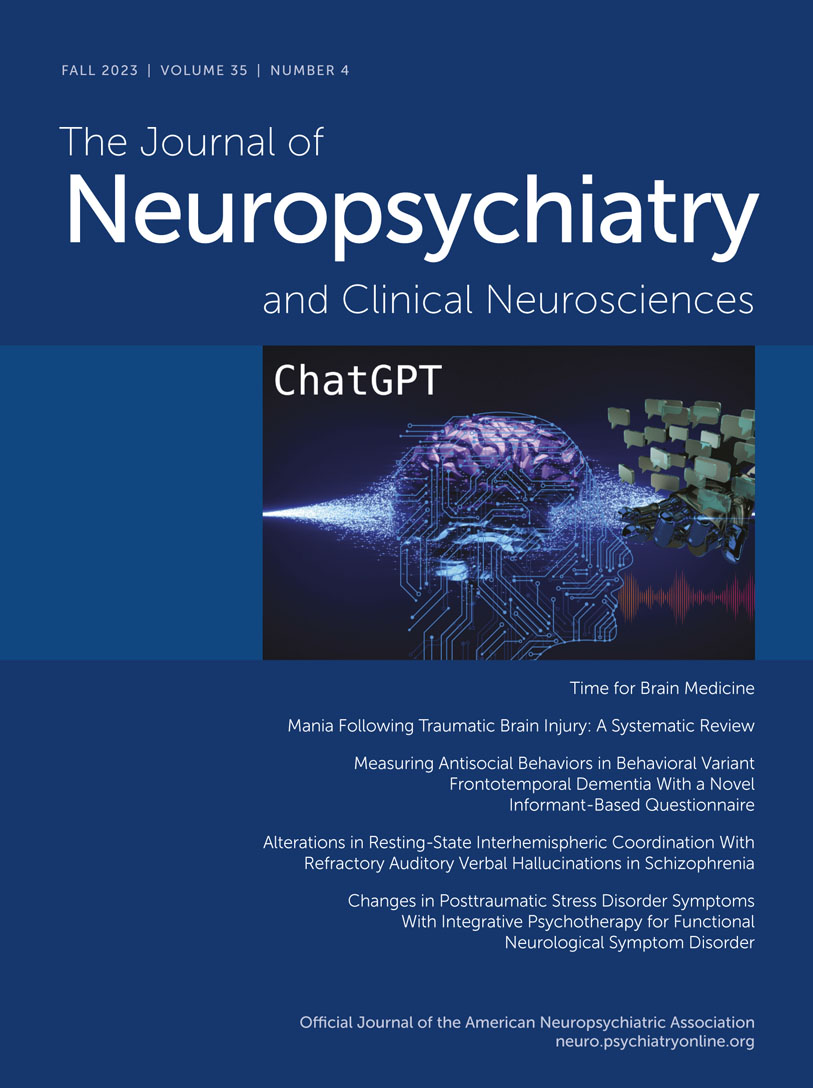Suicidal Thoughts and Behaviors in Anti-NMDA Receptor Encephalitis: Psychopathological Features and Clinical Outcomes
Abstract
Objective:
A wide variety of neuropsychiatric symptoms are described during the acute phase of anti-N-methyl-d-aspartate receptor encephalitis (ANMDARE), including psychosis, mania, depression, and catatonia, but there are few reports on suicidal thought and behaviors in ANMDARE. To address this gap in the literature, the authors measured the presence of suicidal thoughts and behaviors among a large cohort of Mexican patients diagnosed with definite ANMDARE.
Methods:
This observational and longitudinal study included patients with definite ANMDARE hospitalized at the National Institute of Neurology and Neurosurgery of Mexico between 2014 and 2021. Suicidal thoughts and behaviors were assessed before and after treatment by means of a clinical interview with relatives and a direct clinical assessment with each patient. Thoughts of engaging in suicide-related behavior and acts of suicidal and nonsuicidal self-directed violence before and during hospitalization were recorded.
Results:
From a total sample of 120 patients who fulfilled the diagnostic criteria for definite ANMDARE, 15 patients (13%) had suicidal thoughts and behaviors during the acute phase of the disease. All 15 of these patients experienced psychosis and had suicidal ideation with intention. Three patients engaged in preparatory behaviors and seven carried out suicidal self-directed violence. Psychotic depression and impulsivity were more frequent among those patients with suicidal thoughts and behaviors than among those without any form of suicidality. Four patients engaged in self-directed violence during hospitalization. Remission was sustained in 14 of 15 patients, with suicidal ideation and self-directed violence persisting during follow-up in only one patient.
Conclusions:
Suicidal thoughts and behaviors are not uncommon during the acute phase of ANMDARE. On the basis of our sample, the persistence of these features after immunotherapy is rare but may be observed. A targeted assessment of suicidal risk should be strongly considered in this population.
Access content
To read the fulltext, please use one of the options below to sign in or purchase access.- Personal login
- Institutional Login
- Sign in via OpenAthens
- Register for access
-
Please login/register if you wish to pair your device and check access availability.
Not a subscriber?
PsychiatryOnline subscription options offer access to the DSM-5 library, books, journals, CME, and patient resources. This all-in-one virtual library provides psychiatrists and mental health professionals with key resources for diagnosis, treatment, research, and professional development.
Need more help? PsychiatryOnline Customer Service may be reached by emailing [email protected] or by calling 800-368-5777 (in the U.S.) or 703-907-7322 (outside the U.S.).



